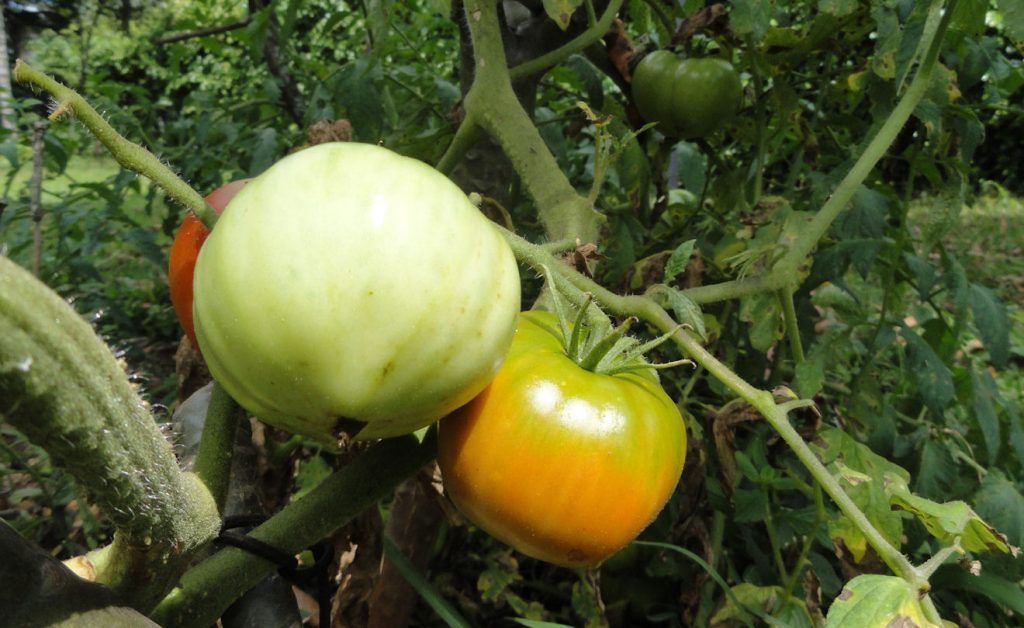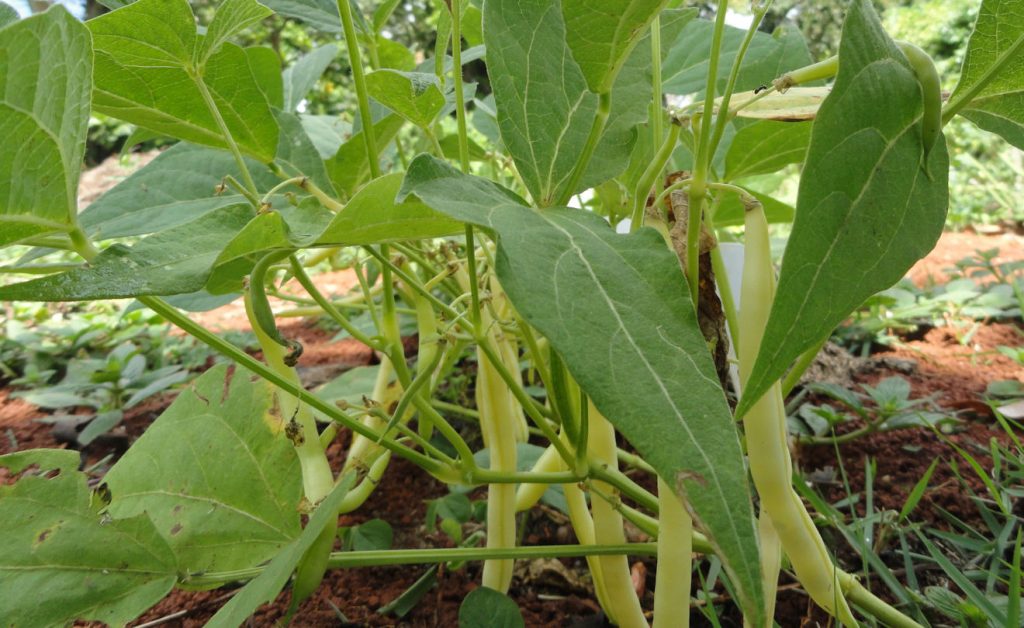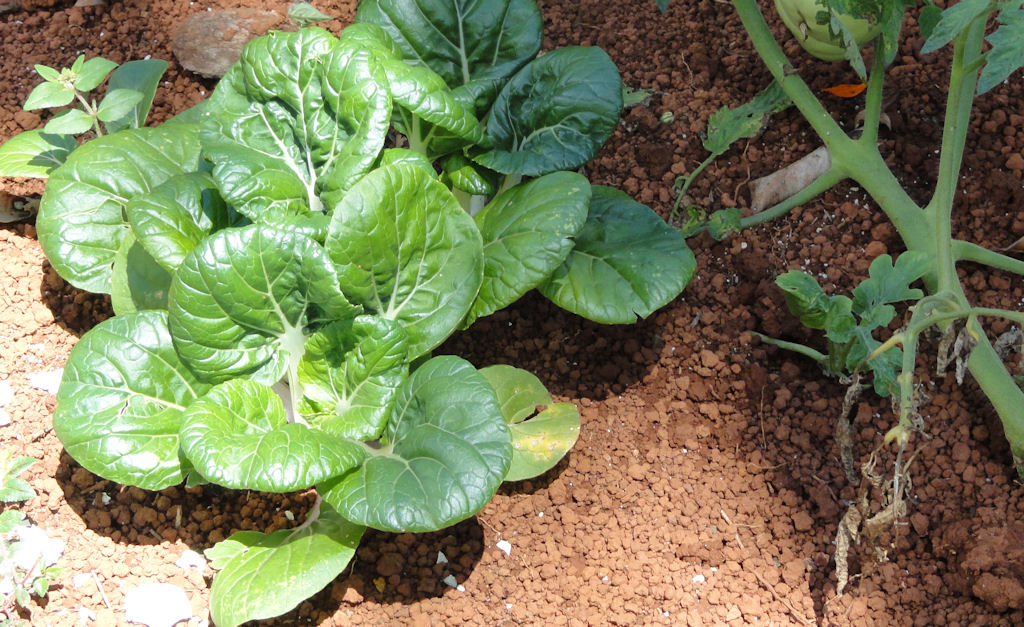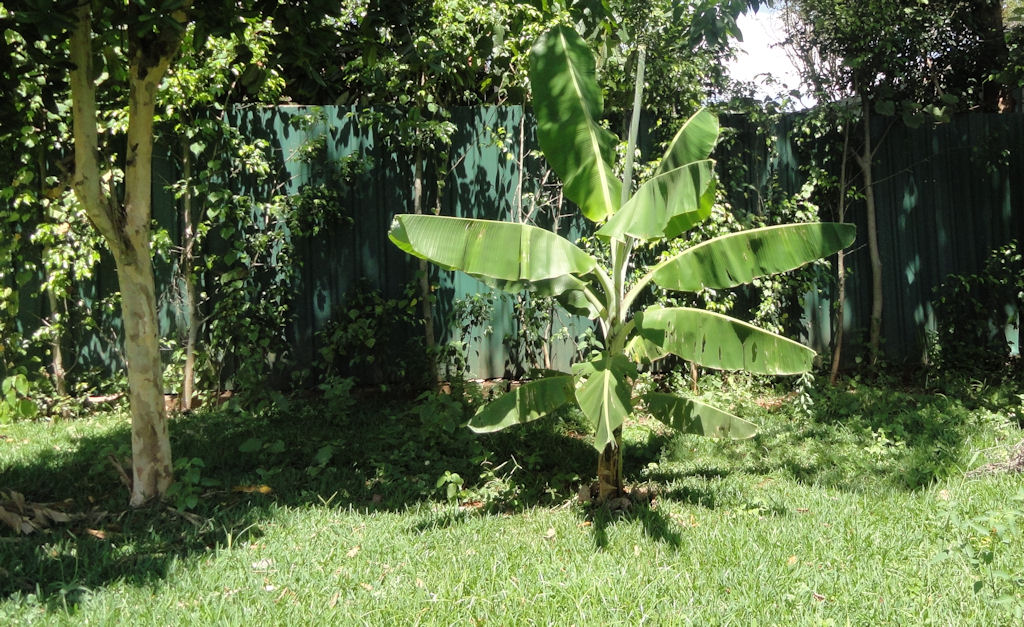
I don’t put enough time into gardening to be really good at it and my harvests result more from luck and the inherent characteristics of the plants themselves. I would starve if I had to depend on the produce from my soil. But I will be better next time. This year was a learning time. There are seasons in Brasília, even if it is a place of eternal springtime. After spending a year here, I hope I will have a better understanding of the subtlety of my garden. The obvious seasonal difference is the rainy versus the dry season.

As I explained in earlier posts, Brasília is a very strange place with regards to water. It is like a desert during the dry season, but unlike a place like Arizona there is no shortage of water on the Brazilian high plains. More rain falls in a couple days during the rainy season here than falls in Phoenix all year long. You could water your gardens and lawns every day w/o running afoul of water restrictions or even feeling bad about wasting a scarce resource.
Most of my neighbors are profligate water users and they can be because of the unique nature of the water cycles here. I did not and do not plan to soak my grass during the dry season. It is less because I want to conserve water, which around here really doesn’t make a difference, and more because I prefer not to have to mow the lawn so often. I did and will water my flower and vegetable garden, but it is not as easy as that.
It doesn’t seem like you can dump enough water on the garden during the dry season, at least I didn’t. I planted tomatoes, watermelons and lots of flowers. They grew fitfully until the rainy season, when they went through a phase change. I suppose it is a matter of how much irrigation you use. Brazilians successfully grow all sorts of fruit and vegetable around here, so it must be possible

I also need to analyze my soil. The gardener told me that the local soil is poor and sour/acid. I have been adding organic material, i.e. grass clippings, peels etc. but that doesn’t much change the Ph. I hope that Espen will be here during this U.S. Summer. I will have to feed him a higher quality diet than I eat, which means I will be grilling more and producing wood/charcoal ash that I can use as potash to sweeten the soil. I will get my soil in shape just about the time I leave. The Embassy will probably plant grass on my erstwhile garden and future tenants in my house will notice that the grass grows faster on that spot, but they won’t know why.

You can see in my pictures that my crops are almost ready to eat. I didn’t have much luck with lettuce. It is just starting to come up now. I think that birds ate the seeds. Well … I did a poor job of planting. Lettuce seeds are very small. I had trouble with them as they stuck to my fingers and got lost in the dirt. I should have started them in pots and then moved them. Instead I put them directly into the Brazilian clay with poor results. I planted the tomatoes seeds directly into the soil and it worked out okay. Tomatoes are forgiving, however. I only need to get one or two plants to work in order to produce more tomatoes than I could eat. The big surprise is the watermelons. I grew them from seeds of a particularly good watermelon. The vines grew slowly, with lots of flowers but only one fruit, which was damaged by some animal and rotted inside. I gave up, but didn’t bother to pull out the vines. I was surprised how they grew and then only a couple weeks ago I got a profusion of melons. I counted eleven, a few of which are getting pretty big. I read that you pick them when the stem entering the melon turns yellow. I consume one watermelon every two weeks, so if even a few of these come to sweet maturity I will be set for months.

I didn’t include a picture of my sweet corn because it is depressing. It just has not grown up to its promising start. I will leave it alone, however. Maybe it will work out as the watermelon did. My banana tree is growing robustly, but I am told that it will not produce bananas for about a year and half.
It is a lot of work to dig up all plants and create a garden and I don’t always have time to do it. I will work on this a little at time, incorporate my compost etc. and have it ready for the next rainy season. Next year will be better, with my improved soil and enhanced experience. The wonderful thing about gardening is that you get many chances for iterative learning and improvement.
